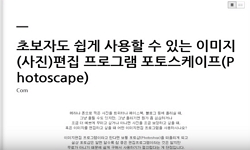Reconstructing the literary-historical context in which the "Short Poem" originated and ended offers an opportunity to understand the period primarily categorized as a Short Poem in literary history. Furthermore, this study may assist us in comprehend...
http://chineseinput.net/에서 pinyin(병음)방식으로 중국어를 변환할 수 있습니다.
변환된 중국어를 복사하여 사용하시면 됩니다.
- 中文 을 입력하시려면 zhongwen을 입력하시고 space를누르시면됩니다.
- 北京 을 입력하시려면 beijing을 입력하시고 space를 누르시면 됩니다.
https://www.riss.kr/link?id=A109638912
-
저자
김미영 (復旦大學校 中國語言文學系, 博士後硏究員)
- 발행기관
- 학술지명
- 권호사항
-
발행연도
2025
-
작성언어
Korean
-
주제어
小詩 ; 周作人 ; 하이쿠 ; 멀리서 읽기 ; 문학연구회 ; 이미지 ; Short Poem ; Zhou Zuoren ; Haiku ; distant reading ; Literary Research Society ; Image
-
등재정보
KCI등재
-
자료형태
학술저널
- 발행기관 URL
-
수록면
27-58(32쪽)
- DOI식별코드
- 제공처
-
0
상세조회 -
0
다운로드
부가정보
다국어 초록 (Multilingual Abstract)
After the New Literature Movement, the era during which Zhou Zuoren, who was accumulating cultural capital in the literature field, developed the theory of Short Poem coincides with the early period of creation when the creation of Short Poem became active. A series of works, including Zhou Zuoren's translations of Japanese haiku and tanka and his published critiques on this forms, are closely connected to the rise in popularity of Short Poem. At the same time, the role of the Literary Research Society, which contributed to the distribution and spread of Zhou Zuoren’s translated poems and theories, cannot be overlooked. In the process in which Short Poem was conceived, their claims and agreements intertwined, and this literary phenomenon facilitated an environment in which the Short Poem could flourish. The role of the Literary Research Society was to provide socio-cultural capital that could publicize and expand the form of the Short Poem that originated from Zhou Zuoren, and perhaps was not entirely intended by him.
If we emphasize the ‘length’ of poetry, given the fact that Zhou Zuoren translated and disseminated short poems such as Japanese haiku, his translations could be perceived as akin to the ‘form’ of the Short Poem.
However, the pursuit of a short and concise Poem was a new literary attempt to move toward images of implication and symbolism. The popularity of the Short Poem was not a fleeting phenomenon that flourished briefly and then ceased, but rather a transitional phenomenon before the emergence of symbolist poetry.
Reconstructing the literary-historical context in which the "Short Poem" originated and ended offers an opportunity to understand the period primarily categorized as a Short Poem in literary history. Furthermore, this study may assist us in comprehending the context of the poetry field at that time.
After the New Literature Movement, the era during which Zhou Zuoren, who was accumulating cultural capital in the literature field, developed the theory of Short Poem coincides with the early period of creation when the creation of Short Poem became active. A series of works, including Zhou Zuoren's translations of Japanese haiku and tanka and his published critiques on this forms, are closely connected to the rise in popularity of Short Poem. At the same time, the role of the Literary Research Society, which contributed to the distribution and spread of Zhou Zuoren’s translated poems and theories, cannot be overlooked. In the process in which Short Poem was conceived, their claims and agreements intertwined, and this literary phenomenon facilitated an environment in which the Short Poem could flourish. The role of the Literary Research Society was to provide socio-cultural capital that could publicize and expand the form of the Short Poem that originated from Zhou Zuoren, and perhaps was not entirely intended by him.
If we emphasize the ‘length’ of poetry, given the fact that Zhou Zuoren translated and disseminated short poems such as Japanese haiku, his translations could be perceived as akin to the ‘form’ of the Short Poem.
However, the pursuit of a short and concise Poem was a new literary attempt to move toward images of implication and symbolism. The popularity of the Short Poem was not a fleeting phenomenon that flourished briefly and then ceased, but rather a transitional phenomenon before the emergence of symbolist poetry.
동일학술지(권/호) 다른 논문
-
- 한국중어중문학회
- 박성우
- 2025
- KCI등재
-
出土醫書 속 鑛物類 약재 ‘番石’, ‘石帆’, ‘黑石’, ‘鐵落’에 대한 考釋 및 현대표준학술명(IPC)과의 대응 연구
- 한국중어중문학회
- 이경
- 2025
- KCI등재
-
- 한국중어중문학회
- 안영은
- 2025
- KCI등재
-
说唱歌词中的韵律修辞探析- 以《中国有嘻哈》中出现的歌曲为例
- 한국중어중문학회
- 유소희
- 2025
- KCI등재





 DBpia
DBpia






